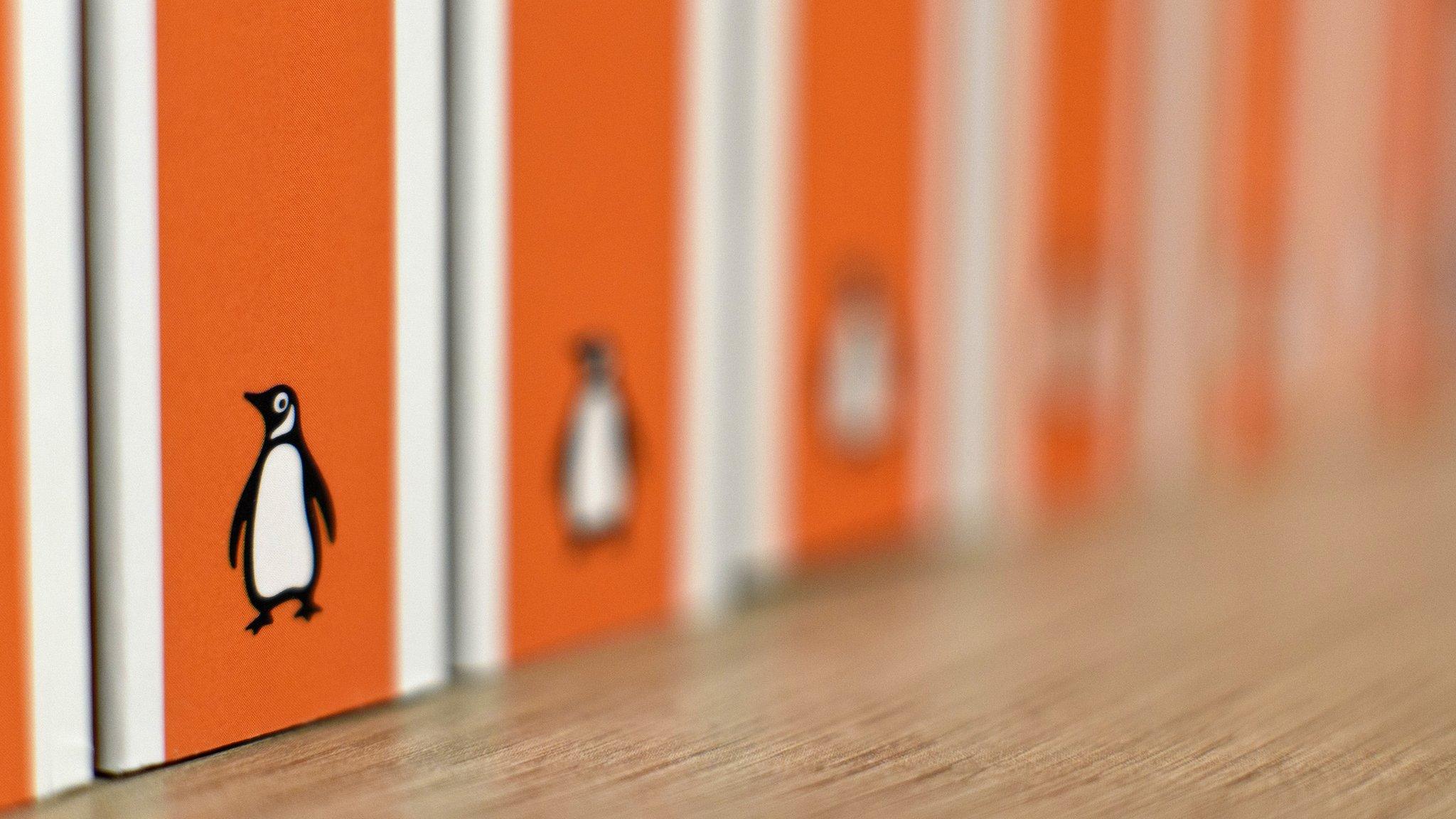US court blocks Penguin merger with Simon & Schuster
- Published

A US court has blocked a $2.2bn (£1.9bn) merger between the world's largest book publisher Penguin Random House and its rival Simon & Schuster.
In a brief order on Monday, US District Judge Florence Pan said the deal could "substantially" lessen competition in the publishing industry.
The US Department of Justice filed a lawsuit to stop the deal last November.
Penguin Random House was formed through the merger of two major publishers from the UK and the US in 2013.
"The court finds that the United States has shown that the effect of the proposed merger may be substantially to lessen competition in the market for the US publishing rights to anticipated top-selling books," Judge Pan said in her two-page order.
Penguin said in a statement that it would appeal against the decision, calling it "an unfortunate setback for readers and authors".
Penguin has worked with celebrated authors including Sylvia Plath, George Orwell and Virginia Woolf.
In more recent times it has published books by Zadie Smith, Marian Keyes and Dan Brown.
Simon & Schuster has published works by Stephen King, Jennifer Weiner and former US presidential candidate Hillary Clinton.
During a trial in August, the US government argued that Penguin and Simon & Schuster combined would control nearly half the market for publishing rights of blockbuster books.
Penguin's lawyer Daniel Petrocelli said the two publishing houses would deliver "enormous benefits" to readers and authors as they would continue to compete against each other even after merging.
However, best-selling horror writer Stephen King dismissed the claim.
"You might as well say you're going to have a husband and wife bidding against each other for the same house. It's kind of ridiculous," he told the court.
"The proposed merger would have reduced competition, decreased author compensation, diminished the breadth, depth, and diversity of our stories and ideas, and ultimately impoverished our democracy," US Assistant Attorney General Jonathan Kanter said in a statement.
It comes as the Biden administration steps up its regulation of anti-competitive practises.


Penguin will publish the Duke of Sussex's memoir on 10 January
In 1935, Allen Lane and his brothers Richard and John co-founded the British publishing house Penguin Books.
Its distinctive logo has adorned some of the most high-profile books in publishing history.
The company triggered major controversies with the 1960 publication of DH Lawrence's Lady Chatterley's Lover and The Satanic Verses by Salman Rushdie in 1988.
Penguin merged with New York-based Random House in 2013 to create the world's largest publishing house.
At the time, the European Commission said the combined business would not raise competition concerns, because it will "face several strong competitors".
Random House's German parent company, Bertelsmann, initially owned 53% of Penguin Random House, while 47% was held by Penguin's owner Pearson.
Bertelsmann became the sole owner of Penguin Random House in April 2020.

You may also be interested in:
The Book Bunk Trust is restoring library archives to help teach a new generation about Kenyan history.
Related topics
- Published27 October 2022

- Published17 October 2022

- Published19 July 2021

- Published5 April 2021
